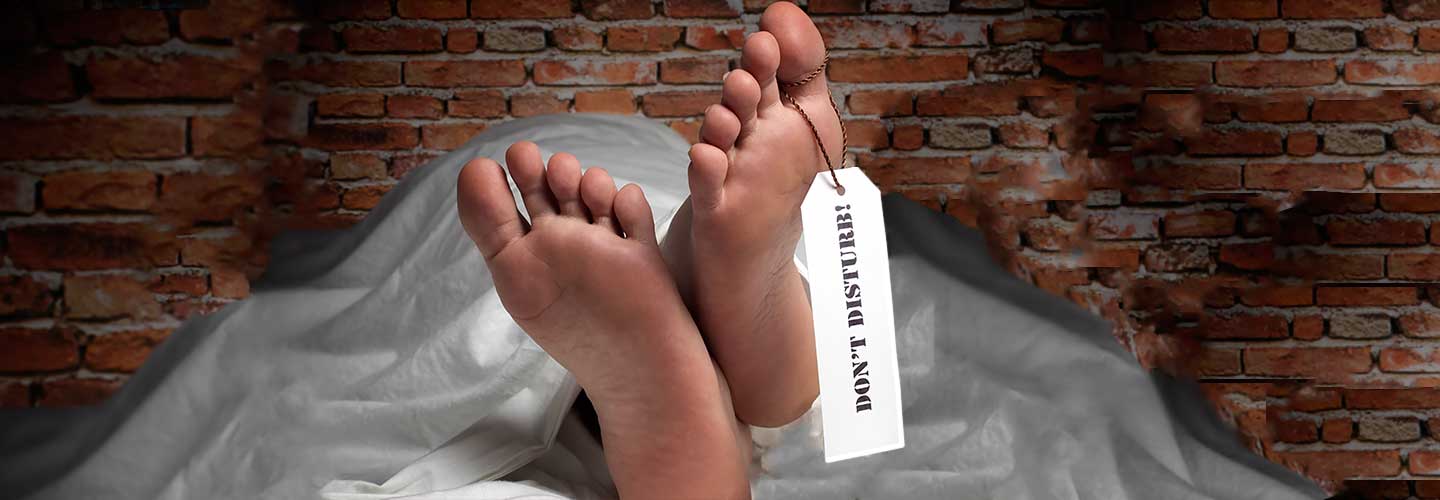DNA… Nurture Your Nature – Session Thirteen
- Home
- Blog

Rest In Peace… or RIP?
DNA+Environment+Triggers+Chance = “Good Sleep” or “Bad Death”
“Tweak Your Sleep Genes” to Ward Off Premature Death, through Modifying the Expression of CLOCK, MEIS1, and HLA-DQB1 Genes
– Bruce Alan Kehr, M.D.
Reader, have you ever met someone who wears their lack of sleep like a badge of honor? “Oh, I can do just fine on about four hours of sleep a night,” they might say, proudly. When I used to hear those sentiments myself, I would feel a surge of jealousy. Think what I could accomplish with those extra hours not sleeping! I’ll admit, I even felt that my complete inability to function without at least a solid six hours made me feel weak—like I was less strong a person or lacked the mental resilience that these “genius non-sleepers” apparently possessed in spades.
Well, if you’ve ever had similar thoughts, please hear me out: These are not the folks you want to emulate, period! Think of your lack of sleep like a car engine with little fuel left, thereby powering a much lighter vehicle. “Running on empty” in both scenarios might seem more efficient at first, but in each instance it increases the risk of running out of fuel, which can result in serious long term damage.
If you strive for the bare minimum of eight hours a sleep a night, you are not weak-willed: you are, in fact, simultaneously investing in your mental health and your physical health. A good night’s sleep is one of the most beneficial self-care activities that we can do for ourselves, and it beneficially affects every organ/system in our body, helping us to become more efficient in ways we can’t even see. It’s one of the best ways to improve our wellness outcomes for years to come. So let’s dive into the Sleep domain and explore the genes that can detract from our sleep and the lifestyle changes we can make to ensure a peaceful night’s sleep.
The Sleep Domain: Why Catching those “zzZzz’s” is Worth the Effort
A chronic lack of sleep has been associated with memory problems, immune system issues, difficulty concentrating, and even Alzheimer’s disease. Matthew Walker, the Director of the Center for Human Sleep Science at the University of California Berkeley, puts it well: “Every disease that is killing us in developed nations has causal and significant links to a lack of sleep. So that classic maxim that you may have heard, that you can sleep when you’re dead, it’s actually mortally unwise advice from a very serious standpoint.”
Take it from the expert, reader: There are healing processes at play that can only be accessed with some serious shut-eye. As just one example, you may recall that our glymphatic system, our brain’s way of clearing out toxic proteins, cholesterol, and dead brain cell debris, is active almost exclusively when we sleep. And if this vital system is not activated enough, one’s chances of developing Alzheimer’s disease increase substantially. On the other hand, the disorders that can occur due to lack of sleep are almost too numerous to count: when you don’t get enough hours of sleep, your risk of obesity, cardiovascular disease, dementia, and mood disorders all go up.
Believe me when I tell you this: getting enough sleep isn’t merely about “feeling rested” or “refreshed”. Getting enough sleep can in fact add years to your Healthspan—and not getting enough can take years away.
The Genes at Play When You Rest: CLOCK, MEIS1, and HLA-DQB1
Before we jump into understanding the function of these genes, I want you to reflect on some of the behaviors that you have witnessed in yourself when you don’t get enough shut-eye. For instance, I have trouble connecting with people, I stray from my usually regimented diet by reaching for the sweets or carb-heavy snacks, I am quicker to anger and slower to focus. If you have a risk variant of one of these genes below, you may be setting yourself up to experience those sleeplessness-related attributes even more than the average individual. Over time, these negative behaviors compound—as do the negative health consequences – adversely affecting ourselves and our loved ones. Now, on to the genes themselves:
The CLOCK Gene
CLOCK: I couldn’t find a more apt name for this gene if I tried! As the name suggests, CLOCK is one of the central genes involved in governing and regulating your biological clock, or your circadian rhythms. The CLOCK gene is specifically involved in regulating that circadian activity across a number of biological functions, including metabolism and energy balance. If you possess a risk variant of this gene, your circadian rhythms may be slightly dysregulated, leading to a less-functional metabolism and other related consequences. The T3111C variant in particular may put you at greater risk of obesity, diabetes and metabolic syndrome (elevated lipids, cholesterol, and glucose). Interestingly, this variant is also associated with emotional eating. If you have this risk variant, you might consider more thoughtfully the option of reaching for a bag of chips or a sweet treat to make yourself feel better. Bright light therapy, Mediterranean diet, and exercise can help here. Our risk variants don’t always convey what’s best for us —but with the right information, we can override what our genes are promoting, and make ourselves healthier in the process.
The MEIS1 Gene
MEIS1: A single variant on this single gene—the T-G variant—is strongly correlated with an increased risk of developing Restless Legs Syndrome (RLS), and those born with a G allele have an almost twofold increase in developing the syndrome over time. MEIS1, or Meis Homeobox 1, encodes a protein that is part of a regulatory network involved in spinal motor neuronal connectivity. If you have this risk gene, you and your doctor can discuss options to help mitigate RLS, which often keeps individuals up at night with the strong urge to move. Someone with this gene might be screened for RLS, and if present be screened for ferritin levels, and if they are low be prescribed ferrous sulfate with Vitamin C.
The HLA-DQB1 Gene
HLA-DQB1: This gene exemplifies something I absolutely love about this next frontier in personal genomics: A single variant of this gene—namely the HLA-DQB1*0602 allele—is carried in over 90% of individuals with narcolepsy. Sometimes, it’s just that simple: a single gene can have an outsize impact. And the biology behind this variation is intriguing. This risk allele seems to play a role in disrupting the pathway for hypocretin (orexin), a neurotransmitter involved in the regulation of sleep and arousal. The disruption leads to an autoimmune reaction that targets hypocretin-producing neurons and kills them. This process leads individuals to be more susceptible to narcolepsy and multiple sclerosis. This gene is NOT diagnostic of these conditions, but should heighten suspicion as Narcolepsy is frequently misdiagnosed as depression, schizophrenia, or hypothyroidism; and many people with MS are misdiagnosed and are left in the dark for years before getting a diagnosis. With so many therapeutic options available nowadays to arrest the progression of MS, early diagnosis is a key factor.
Rest In Peace… or RIP
Reader, this blog is likely not the last you’ll be seeing on the topic of sleep. As work hours get longer and longer and tech addiction gets more severe, it’s quite possible the sleep deprived among us will continue to suffer, with more joining our ranks by the day. But this is not something to put on the backburner. Your sleep genes can be successfully “tweaked” to help every part of your body and brain function smoothly, and promote better health. To invest in your sleep is to invest in your future, and to help ward off chronic disease and premature mortality.
Related Information
- Learn about Genetic Testing
- Learn about Potomac Psychiatry
- Meet Our Doctors
- Contact Potomac Psychiatry
.png?width=144&height=144&name=Untitled%20design%20(34).png)



